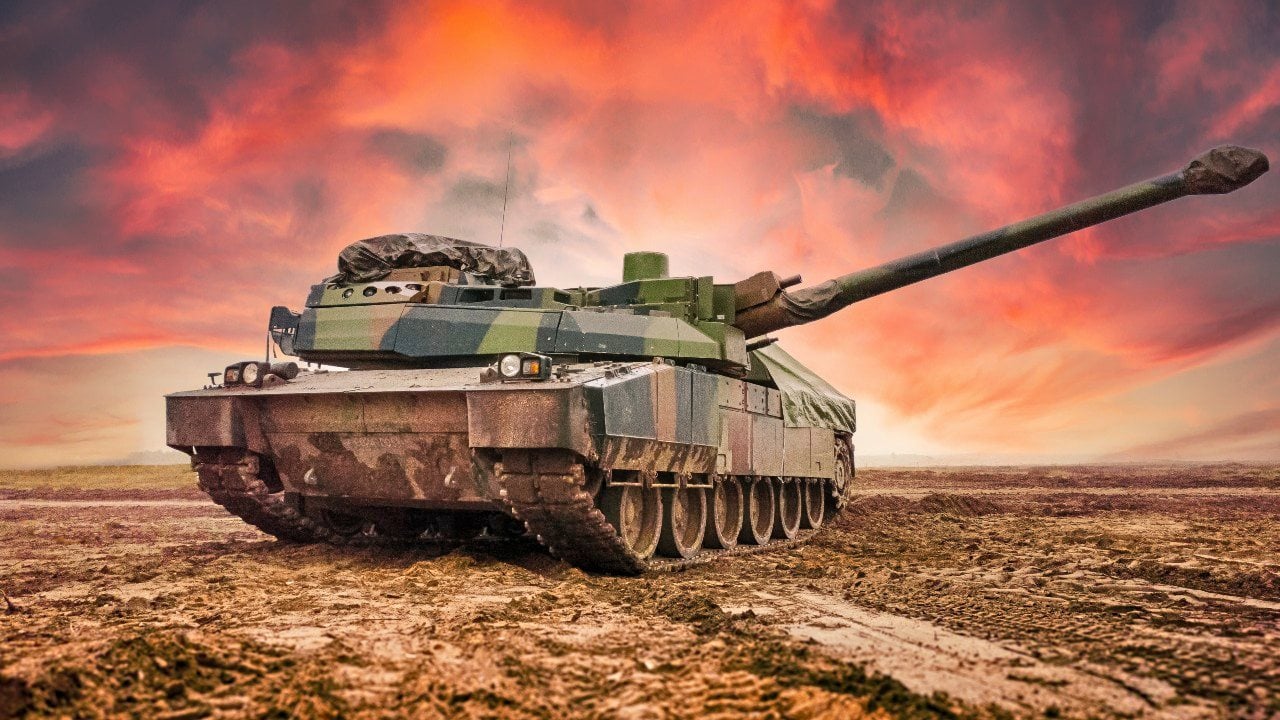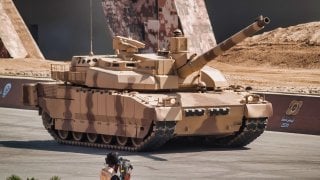France's Leclerc Main Battle Tank Looks Like a Beast
The Leclerc main battle tank has been a cornerstone of the French Army for three decades and will continue to serve with the upcoming Leclerc XLR upgrade.
Summary and Key Points: The Leclerc main battle tank has been a cornerstone of the French Army for three decades and will continue to serve with the upcoming Leclerc XLR upgrade.
-Designed during the Cold War, the Leclerc was built to counter a potential Soviet tank advance. It features a powerful CN120-26 120 mm smoothbore gun, advanced targeting systems, and a SACM V8X Hyperbar diesel engine that provides exceptional speed and power.
-Despite limited combat experience, the Leclerc has proven reliable, leading to its continued use and modernization into the 2020s.
Leclerc Tank: France’s Modern Armor Powerhouse Gets a New Upgrade
The Leclerc main battle tank is a mainstay of the French Army. It has served for three decades, and the Leclerc will stick around at least a little while longer: The fourth-generation Leclerc XLR is set to be delivered through the 2020s.
Designed from 1983 to 1989, the Leclerc is a product of a time when Western Europe was concerned about a Soviet advance from the east. The common understanding at the time, based on the Soviet tactics during World War II – an understanding that would be validated decades later by the Russian invasion of Ukraine – was that any Soviet territorial play would rely heavily on the tank corps. Accordingly, the French needed a reliable tank. Let’s take a look at what they came up with.
Introducing the Leclerc
The main attraction of any tank is the turret. The whole tank is basically built around its turret – the armor protects the turret, and the tracks move it. The turret provides the offensive power that the tank exists to provide. For the Leclerc, designers installed the CN120-26, a 120 mm version of the F1 smoothbore gun. The CN120-26 is a 52 caliber gun with a magnesium-alloy thermal sleeve. It offers a higher muzzle velocity than the 44 caliber guns typically found on main battle tanks.
One of the benefits of the CN120-26 is that the gun is compatible with standard 120x570 mm NATO ammunition. The Leclerc relies upon the CHA automatic loading system. The 500-kilogram CHA is relatively sophisticated, with the ability to track six targets simultaneously and to fire successive rounds in eight-second increments.

While the turret is the main attraction of any tank, all tanks are built with secondary offensive systems. In the case of the Leclerc, operators can opt for a 12.7 mm coaxial M2 heavy machine gun, or the turret-mounted 7.62 mm machine gun for instances where the main turret offers too much, or imprecise, firepower.
Powering the roughly 55-ton Leclerc is a SACM V8X Hyperbar diesel engine. The SACM V8X features an automatic transmission and a Turbomeca TM 307B gas turbine that can serve as both a turbocharger and an auxiliary power unit. It offers 1,500 horsepower that can propel the Leclerc to speeds over 70 kilometers per hour with an acceleration rate of 32km/h in just 5 seconds. The Leclerc is smaller than most of its Western contemporaries, and as a result it has an exemplary power-to-weight ratio of 27 horsepower per ton.
Limited Combat Experience
The French are not known for their modern combat experience, and the Leclerc has engaged only in low-intensity conflicts. Examples include the stationing of the Leclerc in Kosovo and in Lebanon as a part of NATO-led peacekeeping operations. Leclercs exported to the United Arab Emirates have been deployed to Yemen.
Despite not seeing much combat action, the Leclerc has proven itself to be a reliable vehicle. That is why the French have committed to the Leclerc XLR upgrade, which will remain in service for the foreseeable future.
About the Author: Harrison Kass, Defense Expert
Harrison Kass is a defense and national security writer with over 1,000 total pieces on issues involving global affairs. An attorney, pilot, guitarist, and minor pro hockey player, Harrison joined the US Air Force as a Pilot Trainee but was medically discharged. Harrison holds a BA from Lake Forest College, a JD from the University of Oregon, and an MA from New York University. Harrison listens to Dokken.
Image Credit: Creative Commons and/or Shutterstock.


